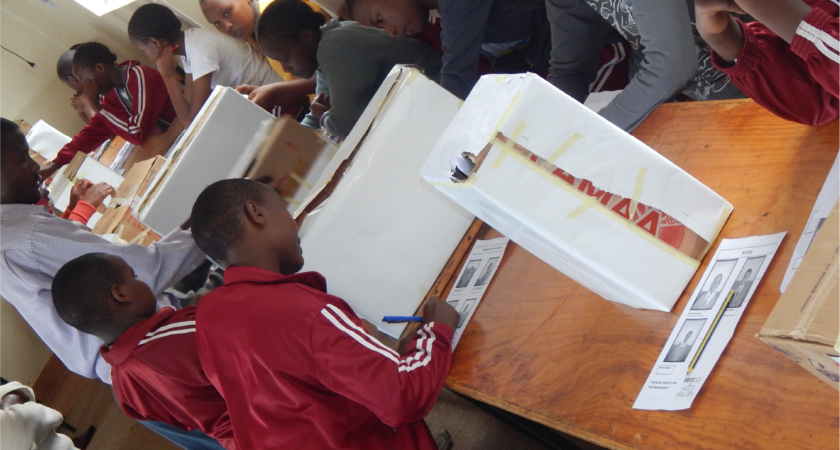lected primary school representatives from Kenya’s 47 counties gathered in Nairobi from June 19-23, 2017 for the National Children’s Government Congress, which included nominations, elections, the children’s government parliamentary session and swearing-in ceremony. With funding from Global Affairs Canada (GAC) under its “Kenya Electoral Systems Support” program, IFES, in partnership with United Nations Children’s Fund and the Kenya Primary School Head Teachers Association, hosted 470 student representatives from the across the country at Nairobi primary school, where the student elections took place.
Children’s Government Elections was formed in 2008 and draws students from several schools across all the 47 counties of the country to nominate and elect their 10 national representatives, who play an active role in improving dialogue between teachers and students.
The students engaged on key issues affecting them in their schools, and facilitators helped them identify their roles as young leaders during the ideation process. Student candidates were each given an opportunity to express their interest and what they would do once elected. The students campaigned with lots of enthusiasm, each child expressing their vision for how they, as young leaders in their communities and in their schools, can be forces of change for all children in Kenya.
Election Day
On the morning of Wednesday, June 21, which was slated as Election Day, the students proceeded to go to different classrooms and nominated their representatives. The voting center was set up to mirror the national election, in order for the children to familiarize themselves with the election process. In total, there were 10 classrooms representing the different the elected positions. These included: chair; deputy chair; speaker; deputy speaker; secretary of education; secretary of sports and culture; secretary of justice, peace and cohesion; secretary of environment, health and sanitation; secretary of children’s welfare and special needs; and secretary of ICT and external relations.
Teacher Training
“This process, is important as it helps build a more cohesive environment thereby improving the learning environment.” – A teacher comments on the school elections program during the conference
IFES’ GAC program also piloted the voter education curriculum for schools and supporting materials with the 86 head teachers present, to get varied and rich input. The avenue provided a good platform for head teachers to familiarize themselves with these materials and determine their usability and appropriateness in schools.
IFES Kenya looks forward to mentoring the new student leaders in the belief that this will entrench a democratic culture in schools and promote responsible citizenship.

